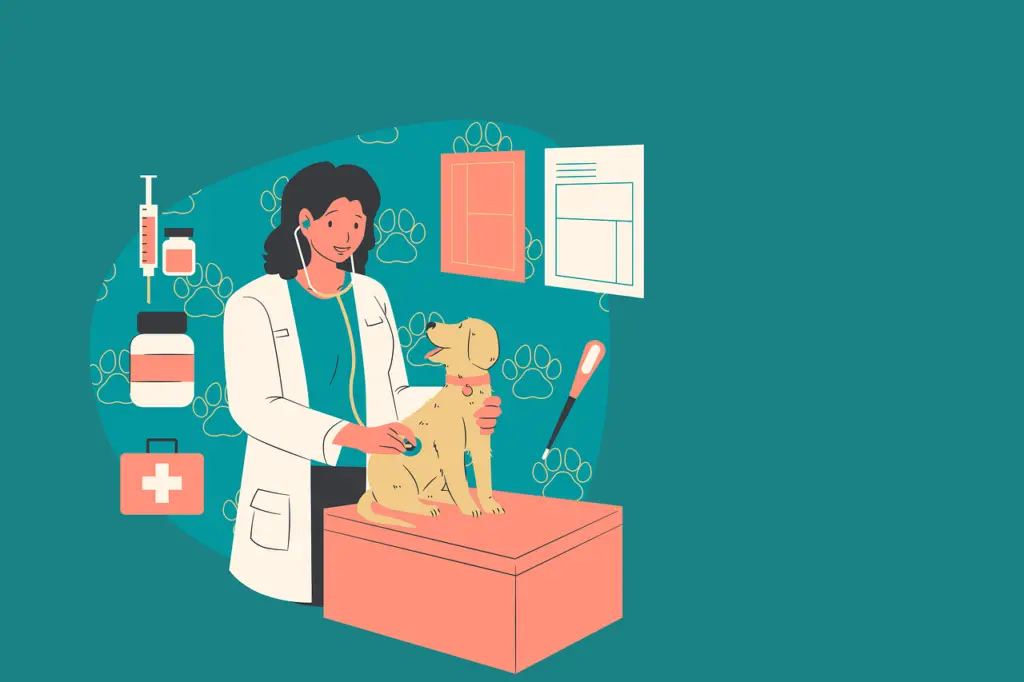If you are a dog owner, you may have encountered moments when your furry companion seems to be struggling with breathing, producing sounds like snoring, wheezing, or coughing.
This can be concerning and lead you to wonder, “Why does my dog sound congested?” Understanding the reasons behind your dog’s respiratory issues is essential to ensure their well-being and comfort.
In this comprehensive guide, we will tell the various respiratory issues that can affect dogs, explore their potential causes, and provide insights to help you address them effectively.
As an expert with a deep understanding of canine health, I will share first-hand knowledge, credible sources, and valuable experiences to make this article an authoritative resource on the topic of why does my dog sound congested.
Why Does My Dog Sound Congested?
A congested dog is experiencing an abnormal buildup of mucus or fluid in their airways or nasal passages. This condition can lead to various concerning sounds like snorting, snoring, wheezing, or coughing. Let’s know the different reasons why your dog might sound congested:
1. Canine Respiratory Infections
Canine respiratory infections, such as kennel cough, are highly infectious and commonly occur in environments with multiple dogs. These infections can lead to your dog sounding congested as they struggle to remove the excess mucus from their respiratory system.
2. Allergies
Just like humans, dogs can suffer from allergies to various environmental factors, including pollen, dust mites, mold, or certain foods. Allergic reactions can cause congestion in your dog’s airways, resulting in unusual sounds.
3. Nasal Foreign Bodies
Curious dogs may sniff and explore objects, leading to the accidental inhalation of foreign bodies like grass seeds or small toys. These objects can get stuck in the nasal passages, causing irritation and congestion.
4. Brachycephalic Airway Syndrome
Brachycephalic dog breeds, such as Bulldogs and Pugs, are characterized by their flat faces and short noses. This facial structure can result in respiratory difficulties, making them more prone to congestion and snoring.
5. Canine Influenza
Canine influenza, also known as dog flu, is a viral infection that can affect your dog’s respiratory system, leading to congestion and other symptoms like coughing and fever.
6. Heart Disease
Congestion in dogs can also be a symptom of heart disease. An impaired heart may struggle to pump blood efficiently, leading to fluid accumulation in the lungs and respiratory distress.
7. Chronic Bronchitis
Chronic bronchitis in dogs is characterized by long-term inflammation of the airways, leading to persistent coughing and congestion.
8. Tracheal Collapse
Small dog breeds, such as Chihuahuas, may experience tracheal collapse, where the cartilage rings in the trachea weaken, causing coughing and breathing difficulties.
9. Pneumonia
Pneumonia, an infection in the lungs, can lead to congestion, difficulty breathing, and coughing in dogs.
10. Heartworm Disease
Heartworms are parasites that can lodge in a dog’s heart and lungs, leading to respiratory issues, including congestion.
11. Canine Asthma
Similar to human asthma, dogs can suffer from asthma, leading to wheezing and difficulty breathing.
12. Laryngeal Paralysis
In laryngeal paralysis, the muscles controlling the larynx fail to open and close properly, causing respiratory problems.
13. Collapsed Trachea
Certain dog breeds, like Yorkshire Terriers, are prone to a congenital condition where their trachea collapses, causing congestion and coughing.
14. Lung Tumors
In rare cases, lung tumors can cause respiratory issues and congestion in dogs.
15. Environmental irritation
Exposure to smoke, chemicals, or other environmental irritation can trigger congestion in sensitive dogs.
16. Environmental irritation:
Exposure to irritation like cigarette smoke or strong chemicals can irritate your dog’s respiratory system, leading to congestion.
17. Structural Issues:
Certain dog breeds with flat faces, like Bulldogs or Pugs, are more prone to brachycephalic obstructive airway syndrome (BOAS), causing breathing difficulties and congestion.
18. Heartworm Disease:
If left untreated, heartworm infestation can lead to congestive heart failure, resulting in a congested sound when your dog breathes.
19. Canine Collapsing Trachea:
A weakened trachea can collapse during inhalation, causing a honking or goose-like sound when your dog breathes.
How to Spot Signs of Congestion in Your Dog?
Recognizing signs of congestion in your dog is necessary for early detection and timely treatment. Here are some common symptoms to watch out for:
- Loud Breathing: If your dog’s breathing is louder than usual, with snorting or snoring sounds, it could indicate congestion.
- Coughing: Persistent or frequent coughing, especially when accompanied by mucus, may suggest respiratory issues.
- Nasal Discharge: Excessive or colored nasal discharge can be a sign of congestion or infection.
- Difficulty Breathing: Notice if your dog struggles to breathe, breathes rapidly, or seems out of breath.
- Laziness: Congestion can make your dog feel fatigued and less active.
- Loss of Hunger: Respiratory issues can affect your dog’s sense of smell, leading to a loss of interest in food.
If you observe any of these symptoms in your pet dog, it’s best to consult your veterinarian for a thorough examination and proper diagnosis.
Remedies for Congestion in Dogs:
If you notice your dog sounding congested, you can try these remedies at home:
1. Provide Humidification:
Using a humidifier can help ease congestion and soothe your dog’s irritated respiratory tract.
2. Keep Your Dog Hydrated:
Ensure your dog has access to fresh water at all times. Hydration can help thin mucus and reduce congestion.
3. Use Steam Therapy:
Create a steam tent by running a hot shower and letting your dog breathe in the moist air. This can help clear the airways and reduce congestion.
4. Advance Sleeping Area:
Raising your dog’s sleeping area can alleviate congestion, especially if they suffer from BOAS. 5. Saline Drops for Nose:
Gently administer saline drops to your dog’s nose to relieve congestion.
When to Seek Veterinary Care:
While home remedies can be helpful, certain situations require immediate veterinary attention:
1. Difficulty Breathing:
If your dog is struggling to breathe, shows blue or pale gums, or collapses, seek emergency care without delay.
2. Non-Stop Congestion:
If your dog’s congestion persists for more than a few days or worsens, consult your veterinarian for a thorough examination.
3. Unusual Symptoms:
Additional symptoms like lethargy, loss of appetite, or fever warrant a vet visit to identify the underlying cause.
FAQs About why does my dog sound congested?
Q: Can I use over the counter cold medications to relieve my dog’s congestion?
A: No, you should never administer human cold medications to your dog without veterinary guidance. Some human medications can be toxic to dogs and may worsen their condition.
Q: Are certain dog breeds more prone to congestion?
A: Yes, brachycephalic breeds and small dog breeds, such as Bulldogs, Pugs, and Chihuahuas, are more susceptible to respiratory issues and congestion.
Q: Is it normal for my dog to sound congested during exercise?
A: Not necessarily. If your dog shows signs of labored breathing or excessive congestion during exercise, it’s best to consult a vet.
Q: Can dogs catch colds from humans and sound congested?
A: While dogs can contract respiratory infections from humans, the viruses are usually different, and their symptoms may vary.
Q: What can I do to prevent allergies causing congestion in my dog?
A: Minimize exposure to allergens by keeping your home clean, using air purifiers, and avoiding outdoor walks during high pollen seasons.
Q: My older dog sounds congested. Could it be a sign of aging?
A: Congestion in older dogs could indicate age-related issues, but it’s crucial to rule out other medical conditions through a vet checkup.
Q: Should I be worried if my puppy has occasional bouts of congestion?
A: Occasional congestion in puppies can be normal, but monitor their condition and seek vet advice if it persists or worsens.
Conclusion:
Congestion in dogs can stem from various causes, and understanding the root issue is vital for providing appropriate care. While some cases can be managed at home, severe or persistent congestion demands professional attention.
Always prioritize your dog’s well-being, and never hesitate to consult your veterinarian when in doubt. With proper care and attention, you can ensure your furry friend lives a happy and healthy life, free from bother some congestion.


